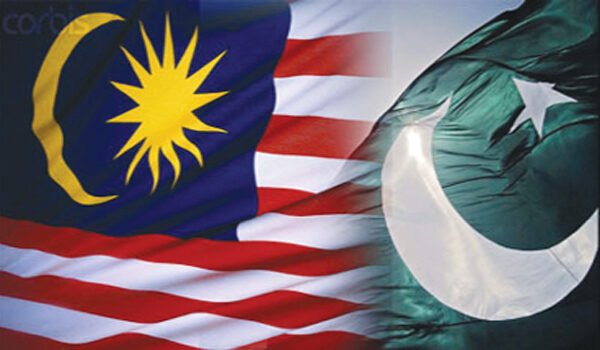Zafar Iqbal
Pakistan’s relationship with Malaysia has long been one of quiet depth rather than diplomatic showmanship. Rooted in shared faith, development ideals, and a mutual belief in pragmatic cooperation, the two Muslim-majority nations have often found in each other a dependable partner in an unpredictable world. Yet, their latest collaboration—a Malaysian decision to import $200 million worth of Halal meat from Pakistan—marks a defining moment that blends symbolism with substance.
For Pakistan, this is not just another trade deal; it is a statement of confidence from a country globally respected for its Halal industry, institutional discipline, and governance standards. Malaysia’s willingness to source such a large volume from Pakistani producers reflects trust in Pakistan’s political assurances and regulatory commitment. It also signals the potential of a South–South economic partnership grounded in complementarity rather than dependency.
Follow Republic Policy on YouTube
Malaysia’s decision fits well within its broader strategy of diversifying the Halal supply chain while deepening trade and educational linkages with fellow Muslim economies. For Pakistan, the opportunity extends beyond exports—it includes learning from Malaysia’s model in vocational training, IT innovation, agribusiness, and quality regulation. If approached seriously, this relationship could evolve into a model of cooperation where both nations exchange expertise rather than aid.
However, such optimism must be tempered by self-awareness. Pakistan’s performance in the global Halal market has remained disappointing, not because of lack of opportunity, but because of institutional neglect and poor regulatory consistency. Despite being home to one of the world’s largest livestock populations, Pakistan has failed to become a key player in the international Halal trade. Continuous crossbreeding has diluted livestock traceability, making it nearly impossible to certify animal pedigree—an essential requirement in high-value Halal markets like the European Union.
Follow Republic Policy on Facebook
In an industry built on documentation, transparency, and verification, Pakistan’s weak certification mechanisms undermine its credibility. The paradox is striking: a country abundant in livestock but deficient in regulation struggles to access the very markets it should dominate. Malaysia’s new agreement should therefore serve as both a vote of confidence and a wake-up call.
Follow Republic Policy on TikTok
Confidence—because it shows that Pakistani exports can win international acceptance when supported by political will, transparency, and scientific standards. A warning—because maintaining this partnership will depend less on diplomacy and more on regulatory discipline. The Halal industry has evolved from a faith-based label to a multibillion-dollar global compliance regime, governed by traceability, testing, and certification standards. Pakistan must modernize its regulatory systems accordingly.
Follow Republic Policy on Instagram
At the political level, Prime Minister Shehbaz Sharif’s emphasis on vocational exchanges, governance collaboration, and joint ventures reflects a pragmatic understanding of Malaysia’s success. Kuala Lumpur’s governance model—based on planning, meritocracy, and public accountability—offers lessons Pakistan urgently needs. Beyond trade, Malaysia’s supportive stance on Pakistan’s position over Gaza and its calls for peace in South Asia show a growing alignment on moral and diplomatic values.
The partnership, however, will only bear fruit through implementation. Announcements alone cannot substitute for action. Pakistan must now ensure robust monitoring mechanisms for Halal certification, transparent testing labs, and verifiable supply chains from farm to port. Without these, the gains promised in Putrajaya will remain political talking points rather than economic realities.
Follow Republic Policy on WhatsApp Channel
This renewed cooperation also reveals a broader truth about Pakistan’s place in the Muslim world. Too often, Islamabad’s diplomacy has been emotional rather than strategic—guided by shared sentiment rather than structured policy. The Malaysia partnership offers a chance to reset that approach. If Pakistan can institutionalize its commitments, it will not only enhance trade but also gain credibility as a dependable economic partner.
The challenge is domestic: improving governance, reducing bureaucratic bottlenecks, and empowering institutions over personalities. The Halal economy, if properly managed, can serve as a bridge between religious values and modern economic growth—a field where Pakistan’s moral credibility can align with global standards of quality and transparency.
In essence, Malaysia has extended a hand of partnership, but sustaining it will depend on whether Pakistan can deliver what it promises. For decades, the two nations have spoken of brotherhood; now is the time to transform that sentiment into systems. This relationship has the potential to become a case study in pragmatic diplomacy—a partnership of shared respect, mutual growth, and institutional learning.
Pakistan’s credibility will rest on results, not rhetoric. If Islamabad succeeds in meeting its obligations, the Malaysia model could redefine Pakistan’s role in the global Halal economy and the wider Muslim world. But if old habits of complacency prevail, even the most promising partnerships will fade into history as missed opportunities.
The moment is ripe for Pakistan to prove that faith-based economies can also be rule-based economies—driven by discipline, competence, and trust.
















